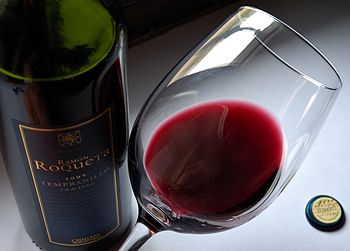Longevity interests a lot of people who aren't ready to give up their lives, just yet, and who look to healthy alternatives to culturally defined eating patterns and "health care."
The benefits of drinking wine have been touted for a while and are thought, by some, to be the reason why the French can get away with eating a high-fat diet while enjoying a low rate of coronary disease.
A few years ago, a study by French research team also found that men who regularly drank at least two glasses of wine daily were 50 percent less likely than non-drinkers to suffer a second heart attack.
Previous studies with yeast, a small species of worm, and fruit flies have shown that resveratrol -- a polyphenol antioxidant found in grapes, especially red grapes, and particularly pinot noir grapes which are grown in northern latitudes and used in wines coming from New York, Washington, and Oregon -- is a life-extending compound.
In a new study from Italy, resveratrol has been used to increase the lifespan of a short-lived breed of tropical fish by more than 50%. Not only did fish given resveratrol in their food live longer than the control group, they stayed livelier as they aged and displayed better memory in stimulus/response tests. And the neurons in their brains didn't decay as quickly when they died and were dissected.
Resveratrol, an organic compound contained in the skins of grapes that protects them from disease, is extracted from grapes by the winemaking process. The wine becomes a preservative for the resveratrol and prevents its oxidation.
That's why drinking grape juice or eating raisins doesn't have the same effect; the resveratrol has neither been extracted nor preserved. It's also been shown that resveratrol in food supplements oxidizes upon exposure to air and loses its effectiveness.
Red wine may truly be a "wondrous drug!"
Other studies have shown that wine, especially red wine, can help prevent colds, increase the levels of HDL (good) cholesterol, lower the risk of Alzheimer's, reduce the size and number of fat cells in the body, reduce the risk of prostate cancer, and has anti-inflammatory properties to boot.
Drug companies are trying to copy Red wine may truly be a "wondrous drug!", but might not be able to preserve its health-preserving benefits. Besides, resveratrol is freely available in red wine and not patentable as such.

